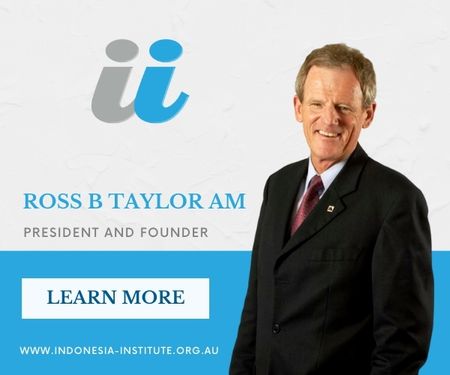BY: NICHOLAS BASAN
Nicholas Basan is a New Colombo Plan Scholar with the Australian Department of Foreign Affairs and Trade.
“Potential” has long been used to describe the economic relationship between Australia and Indonesia, geographic neighbors with underdeveloped business links.
Indonesia ranks as Australia’s 13th-largest trading partner and just 27th as a foreign investment destination. Australia trades more with New Zealand and Hong Kong than with the rising geoeconomic power next door that is Indonesia.
Indeed, the Indonesia-Australia Comprehensive Economic Partnership Agreement, signed in 2019, has yet to have a meaningful impact on trade or investment flows.
The Indonesian market is considered too risky and complex by many Australian businesses, which worry about the potential for reputational damage and a perceived unfriendly legal system.
Lithium, however, could become a bridge to bring the two countries’ business interests closer together.
Australia is the world’s top producer of lithium and is home to the planet’s second-largest reserves of the metal, a key element in the production of electrical vehicles. The country, though, lags behind in lithium processing.
Indonesia, meanwhile, aims to become a global hub for electric vehicle batteries and EVs themselves. President Joko Widodo believes as much as 60% of the world’s electric vehicles will soon depend on inputs from Indonesia’s battery ecosystem.
Lithium could help build connections between Australian and Indonesian companies to drive further economic integration. In particular, Canberra should encourage Indonesian investment in Australia’s lithium sector and downstream processing to create a symbiotic relationship.
The country’s potential has been recognized by many multinationals, including those from Japan, China and South Korea. Hyundai Motor Group and LG Energy Solution, for example, have invested $1.1 billion into the ongoing construction of a lithium-ion battery cell plant on Java Island.
The lack of secure lithium supplies has clouded Widodo’s battery vision. The average EV battery requires around 8 kilograms of lithium.
Luhut Binsar Pandjaitan, Indonesia’s coordinating minister of maritime and investment affairs, recently visited Australia to discuss lithium with mining companies including Tianqi Lithium, BHP Group and Pilbara Minerals. His trip also saw the Indonesian Chamber of Commerce and Industry sign an agreement with the government of Western Australia on collaboration on critical minerals.
Demand for lithium remains strong, although prices have fallen back this year after spiking to new highs in 2022. Securing supplies remains imperative for EV and battery manufacturers.
Several are showing interest in getting more involved with sourcing. Tesla, for example, is exploring direct investment in lithium mines, a step Chinese rival BYD has already taken. China’s Contemporary Amperex Technology (CATL), which outsells BYD in terms of batteries, is also investing in lithium mines.
Indonesian companies in the EV sector should also be looking at lithium mine investments to secure supplies. Cost competitiveness will be critical to customers considering Indonesian batteries or electrical vehicles.
A number of Indonesian conglomerates have already invested in mining in Australia, though mostly in coal. The Widjaja family, for example, owns about two-thirds of Australian metallurgical and thermal coal miner Stanmore Resources via Singapore-listed Golden Energy and Resources.
The Salim family, meanwhile, controls coal miner MACH Energy Australia, copper miner KGL Resources and Atlantic Pty, an Australian producer of vanadium and iron ore.
Australia is viewed internationally as a vast source of energy and minerals and as a robust and stable democracy with low jurisdictional risk. Indonesian companies can play a crucial role in accelerating lithium output by providing financing for mining and processing.
To support bilateral trade and investment, the Australian government should explore policies to drive greater collaboration across the lithium value chain. Australia’s Foreign Investment Review Board’s internal processes, for example, could be streamlined to incentivize Indonesian investment in the sector.
From an Australian standpoint, who better to partner with than the nearest neighbor? What industry can facilitate trade and investment between Indonesia and Australia better than the lithium sector?
Australia and Indonesia have a shared interest in working together to accelerate lithium production to take advantage of the rapid uptake of EV batteries and technologies. An Australian-Indonesian lithium partnership could unlock a powerhouse opportunity in the global EV sector.






